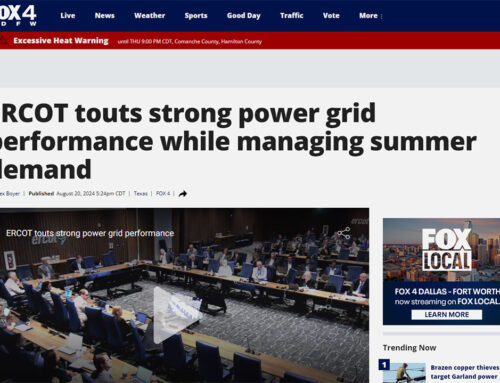Article by Kimberly Zhang, originally published on
Due to uncapped tariffs, businesses today may be facing a 350% energy bill increase, making it a major dilemma across all industries. Startups aren’t exempt from this. With tight budgets, cost-saving measures become essential for long-term success. Fortunately, boutique energy consulting firms offer targeted solutions that address each startup’s unique needs. These specialized firms focus on reducing energy consumption, cutting overhead costs, and ensuring efficient operations.
But how can they really help your business? Read on to find out.
1. Customized Energy Audits
Boutique energy consultants begin by performing a customized energy audit that examines a startup’s current energy use. The audit involves reviewing utility bills, inspecting equipment, and analyzing building performance to pinpoint areas where energy is wasted.
This thorough review helps identify simple fixes such as sealing leaks, updating insulation, or optimizing heating and cooling systems. In some cases, the audit may uncover more complex issues like outdated machinery or inefficient processes that require a broader overhaul.
By understanding a startup’s specific energy profile, consultants can develop a plan that addresses weaknesses and leverages strengths, ensuring that every recommended change directly reduces costs.
The next step involves setting clear goals and identifying actionable steps based on the findings. For example, a small office that finds its lighting system inefficient might be advised to upgrade to LED bulbs. This change may lead to significant savings over time.
2. Cost-Effective Energy Planning
After completing a customized audit, hiring boutique energy consulting firms helps create a cost-effective energy plan tailored to the startup’s needs.
This plan outlines both short-term adjustments and long-term strategies for reducing energy use. The recommendations typically include optimizing operating hours, upgrading equipment, and adjusting daily routines to save power.
The plan helps ensure that energy efficiency becomes part of the company’s everyday operations by mapping out these strategies. It also creates a clear roadmap that allows startups to monitor progress and adjust plans as necessary.
For instance, a startup might decide to schedule high-energy processes during off-peak hours when energy rates are lower. Such a simple change can lead to noticeable savings on monthly utility bills.
In addition, the energy plan might include recommendations for regular equipment maintenance, which helps sustain efficiency over time. With a structured plan, startups are better equipped to allocate resources wisely and make informed business decisions that support operational goals and cost control.
3. Regulatory Compliance and Risk Management
Energy regulations and compliance requirements can be complex and vary by location. Boutique energy consulting firms assist startups in understanding these regulations, helping them avoid costly fines and penalties. They keep track of local, state, and federal rules that affect energy use and recommend steps to ensure adherence to these standards.
This proactive approach mitigates risks and positions the startup as a responsible and successful business in the eyes of regulators and investors. Companies can meet legal requirements through careful planning while pursuing aggressive cost-saving measures.
Consider a startup operating in a region with strict emissions standards. Energy consultants can provide guidance on necessary upgrades to heating systems or the installation of pollution control devices. Such measures not only promote safety and compliance but can also qualify the company for government incentives.
By reducing the risk of non-compliance, startups gain the freedom to focus on growth and innovation rather than on regulatory challenges.
4. Adoption of Energy-Saving Technologies
Modern energy-saving technologies offer startups new ways to cut costs without compromising on performance. Boutique energy consultants often recommend smart thermostats, LED lighting, and energy management systems upgrades.
These technologies can significantly reduce energy consumption by automatically adjusting settings based on usage patterns and environmental conditions. When installed correctly, they offer a streamlined approach to monitoring and controlling energy use throughout the day.
For example, smart thermostats adjust heating and cooling in real time, wasting less energy during periods of low activity. This not only helps lower energy bills but also improves overall operational efficiency.
Consultants may also advise using occupancy sensors, ensuring that lights and appliances are only active when needed. By embracing these advanced yet simple-to-operate technologies, startups can enjoy consistent savings and reduce their environmental impact.
5. Efficient Resource Management
Efficient resource management is another area where boutique energy consulting adds value. This involves careful scheduling, regular maintenance, and optimal resource utilization to ensure that energy is used only when necessary.
Consultants help identify the best times to run energy-intensive operations and suggest ways to distribute the load more evenly. Such adjustments prevent peak-time surges, which often lead to higher rates and wasted energy.
For instance, a startup might discover that running certain equipment overnight when energy demand is lower can significantly reduce costs. Energy consulting firms advise on how to stagger operations, reduce unnecessary energy usage, and even consolidate tasks to minimize downtime.
The careful management of resources leads to a more balanced energy profile, reducing short-term and long-term operational costs. This way, efficient resource management becomes a critical component of an overall energy-saving strategy [….]
Read the original full article on MSN.




